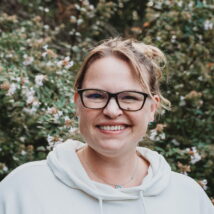
Megan Sever
Freelance Writer
Megan Sever grew up in rural Wisconsin. Her childhood “sandbox” was actually a crumbling sandstone outcrop that she scraped out with a spoon. She credits that early experience for drawing her to geology. But she didn’t want to practice science; she wanted to learn as many different things as she could and to share that knowledge with anyone who’d listen. She found her niche as a science writer and editor with a focus on geology.
She’s spent most of her career writing and editing stories about the geosciences for the public. She ran EARTH magazine for a while but now runs her own business, Gneiss Editing. Through that, she edits and fact checks books, news stories, government reports, children’s podcasts and more. She also writes for Science News, Science News Explores, Highlights, CSA News and other news magazines. She mentors new writers and editors.
Living in Oregon, Megan tends to write a lot about natural hazards, such as wildfires, droughts, landslides and earthquakes. She also covers climate change, groundwater, the economics of natural hazards and soil nutrient issues. When she can, she writes about paleoanthropology and paleontology discoveries.
Megan lives with her husband, two kids and two cats. In her spare time, she coaches Little League, plays softball, does community organizing for political issues, teaches earth science experiments and watches baseball.

All Stories by Megan Sever
-
 Health & Medicine
Health & MedicineHow to be heat-safe when playing sports
Protecting young athletes from overheating is getting more important as climate change turns up the temperature.
-
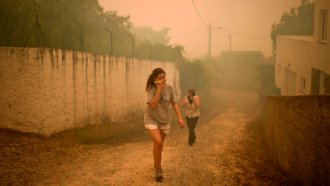 Health & Medicine
Health & MedicineWildfire smoke seems to pose its biggest health risk to kids
New studies, some of them in young monkeys, point to vulnerabilities affecting kids' airways, brains and immune systems.
-
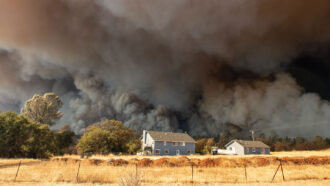 Environment
EnvironmentWestern wildfire smoke poses health risks from coast to coast
As wildfires become more common, their hazardous smoke is sending East Coast residents — especially children — to emergency rooms.
-
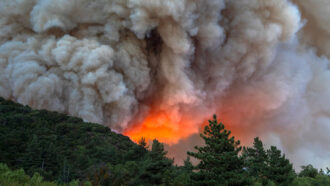 Environment
EnvironmentWildfire smoke seeds the air with potentially dangerous microbes
Studies now show that most wildfires don’t kill microbes. That’s fueling worries about what risks these smoke hitchhikers might pose to people.
-
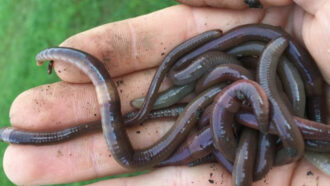 Environment
EnvironmentJumping ‘snake worms’ are invading U.S. forests
These bad-news invaders are spreading across the United States. As they turn forest debris into bare ground, soils and ecosystems are changing.
-
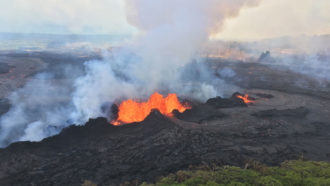 Earth
EarthDid rain put the Kilauea volcano’s lava-making into overdrive?
Scientists share strongly conflicting opinions about why Hawaii’s Kilauea volcano spewed an overabundance of lava in 2018.